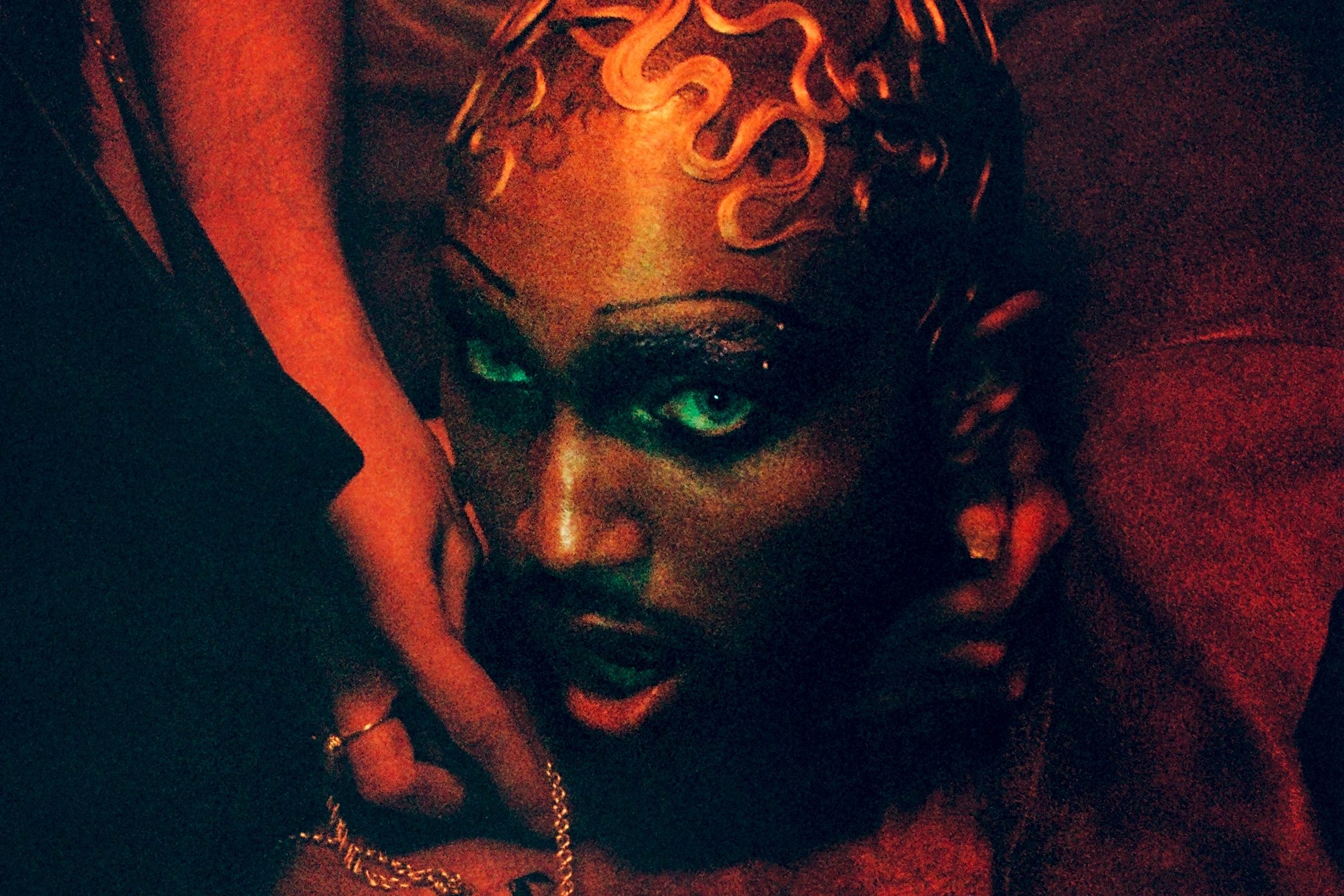 Features
Features
Pop, punk, techno and sex: LSDXOXO is now proud to be seen and heard
Marco Gomez speaks to LSDXOXO about Ballroom culture, celebrating his identity, and shaking up Berlin nightlife with pop sensibilities
“‘Zwanzig’ means ‘twenty’.” It was 2017, and LSDXOXO and I bought a questionable €20 bag of weed in Gorlitzer Park upon our arrival in Berlin. Cancelled flights, a missed gig at KitKatClub and a dreadfully long layover in Russia meant we were exhausted but had our priorities. His movement around the city felt natural for his first time exploring, so it came as no surprise to me that he would make Berlin his new base of operations a year later.
After emerging in the early 2010s with an already sizable following on Tumblr, LSDXOXO began performing in NYC at events like Joey LaBeija’s ‘Legendary’ parties in Williamsburg. Once Venus X welcomed him under the GHE20G0TH1K banner, his online presence and musical output soared to all-new heights.
Read this next: 7 reasons why you need to see GHE20G0THIK founder Venus X

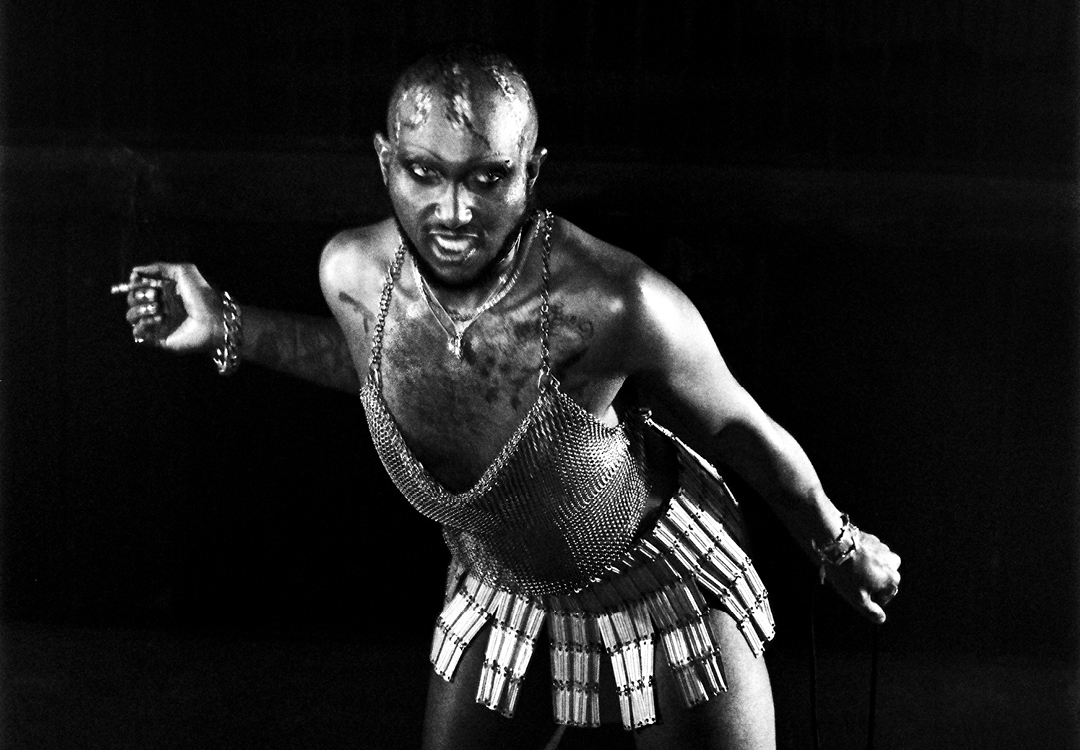
Tracks by LSDXOXO often distil online references that point to the queer Black and Brown experience. His approach to music has the precision of a 1ml syringe, drawing up internet pop culture just to the meniscus of legibility and good taste. Look at the material: his sample etiquette is highly specific, from clips of Angela Bassett portraying Marie Laveau in American Horror Story: Coven to the more recent Pooja Misrra vs Shonali Nagrani showdown meme, drawn from Indian reality TV series Bigg Boss.
It’s an ethos that feels particularly compelling in his DJ sets, where bits of funk carioca and distorted ‘ha’ crashes meet reconfigured hard house refixes of seminal works like Jeff Mills’ 'The Bells'. That kind of presentation is not common in the business we call techno, which oftentimes still values the marathon-esque, “sonic continuity” approach over more pronounced eclecticism. His relationship with global pop culture therefore is never adversarial; rather, it's symbiotic.
Read this next: The Cover Mix: LSDXOXO
LSDXOXO’s flavour of experimentation is akin to the same cultural zeitgeist that birthed artists like Total Freedom, SOPHIE, Arca, Elysia Crampton, and others of the past decade. That decade showcased him squarely in the producer/DJ role, accompanied by artists like BbyMutha, DonChristian, and Cakes Da Killa to provide the lyrical content. In their latest record for XL Recordings, he has moved past genre synthesis and delved directly into rediscovering their own voice, songwriting process, and their key visual components. Avoiding the unwelcoming Berlin weather, we chose to speak over Zoom, where he sat comfortably in their argon-violet lit room, long rows of high fashion gear behind him.
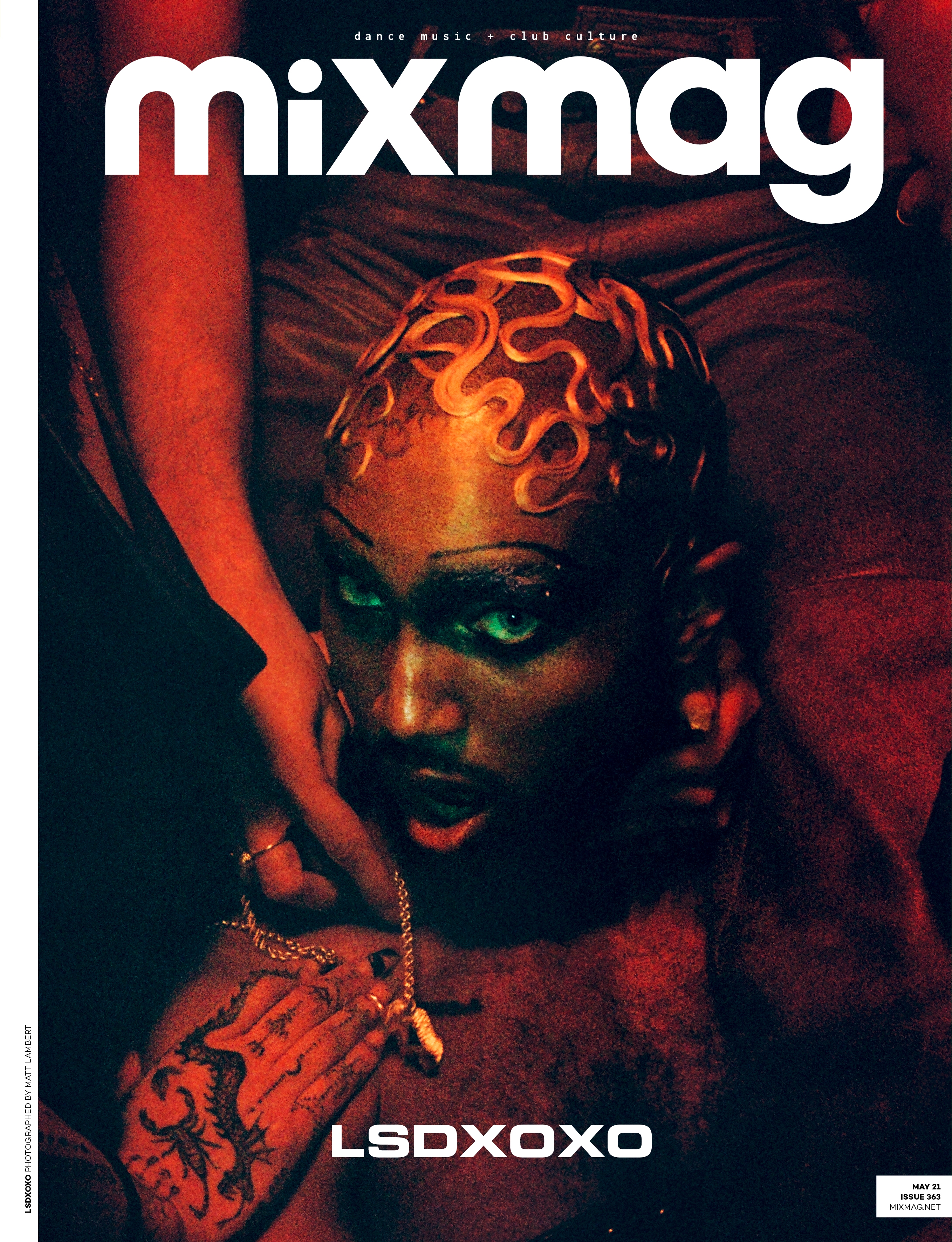
Marco Gomez: You've come a long way since that layover that we had in Moscow that one time on the way over here.
LSDXOXO: That godforsaken layover? Oh god, I forgot about that. That and that Gorly weed.
Read this next: Voguing: A Brief History of the Ballroom
MG: I would say a fair amount of people know us from the New York City club scene. Let's talk about your involvement in the nightlife culture there of the last few years: Ballroom culture, The Spectrum and GHE20G0TH1K. What impact did all of this have on you?
LX: I feel like my work is so referential to whichever scene I dip my toes into. These scenes directly influenced how I work and the music that I make — both technically and visually. Being a resident DJ for GHE20G0TH1K was fitting for my production style at the time. I was building my sound and that approach to music making and DJing spoke to me. The sounds were so eclectic. That attitude of taking and remixing small aspects of genre, since we never really conformed to any specific genre or musical style all night, was something I valued about GHE20G0TH1K.
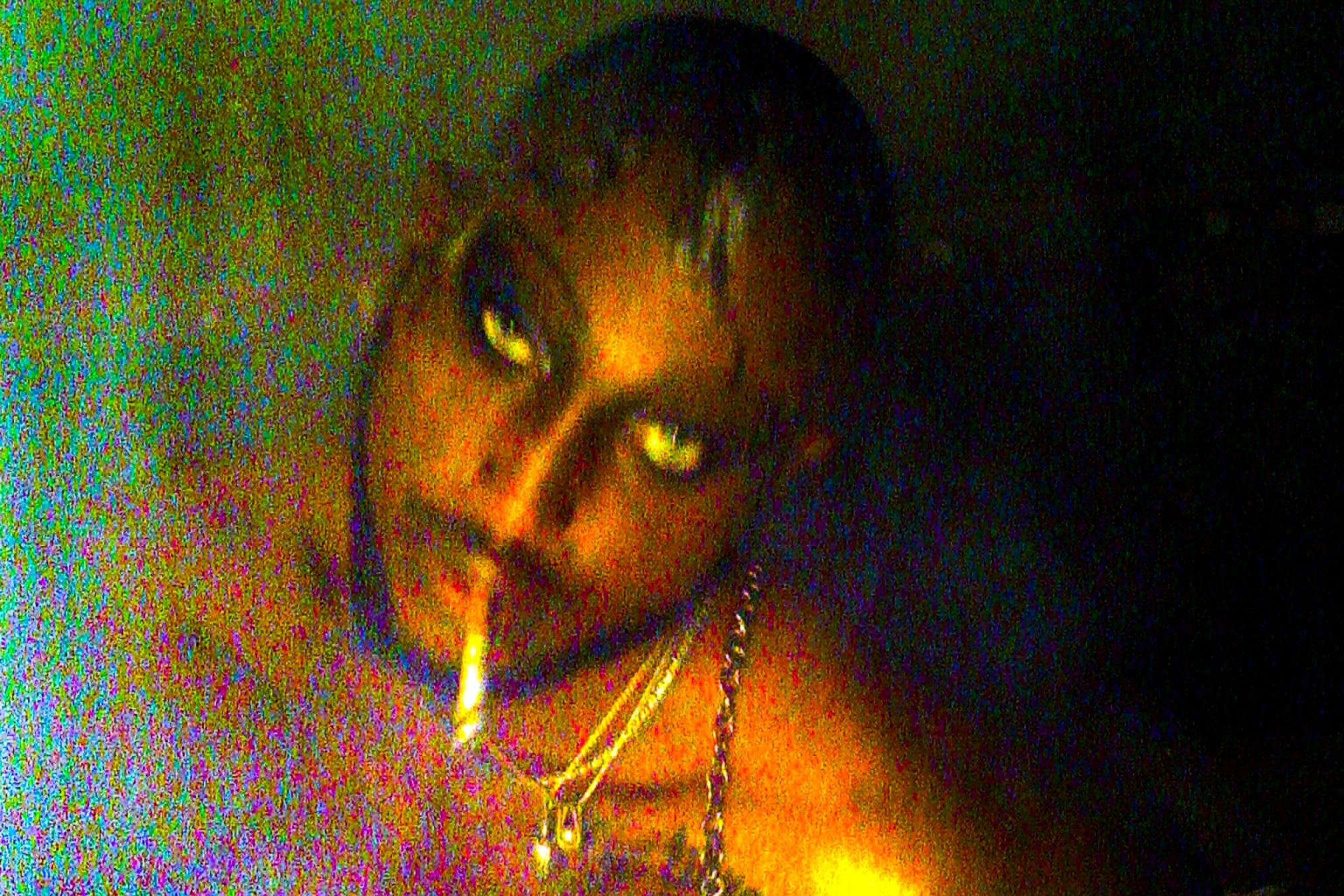
MG: Between where you started in Philly to New York City to Berlin, where would you place your musical homecoming?
LX: I feel like Philly formed my approach to music making in general because I always really appreciated how people there treat radio stations. Radio in Philly gives a spotlight to dance music, which is something I don't really see that a lot in other cities in America. In Philadelphia, there's always at least an hour a day that's dedicated to dance music, whether it's like Baltimore Club, Jersey, or Philly Club. That approach of delivering local dance music and making it approachable or even mainstream definitely influenced what I do.
Read this next: ATM is the Philadelphia collective breaking club music boundaries
MG: What about Berlin now?
LX: I came here because I was touring a lot in Europe. I really liked the way that DJs and producers here were so focused on the technical aspects of making music. That had never been my focus with making music before. I moved here to refine my approach. I spent a lot of time studying pop song structure and mainstream music production methods. It’s not necessarily what I want to make, but understanding and knowing the general approach was important so I could incorporate it into what I do.
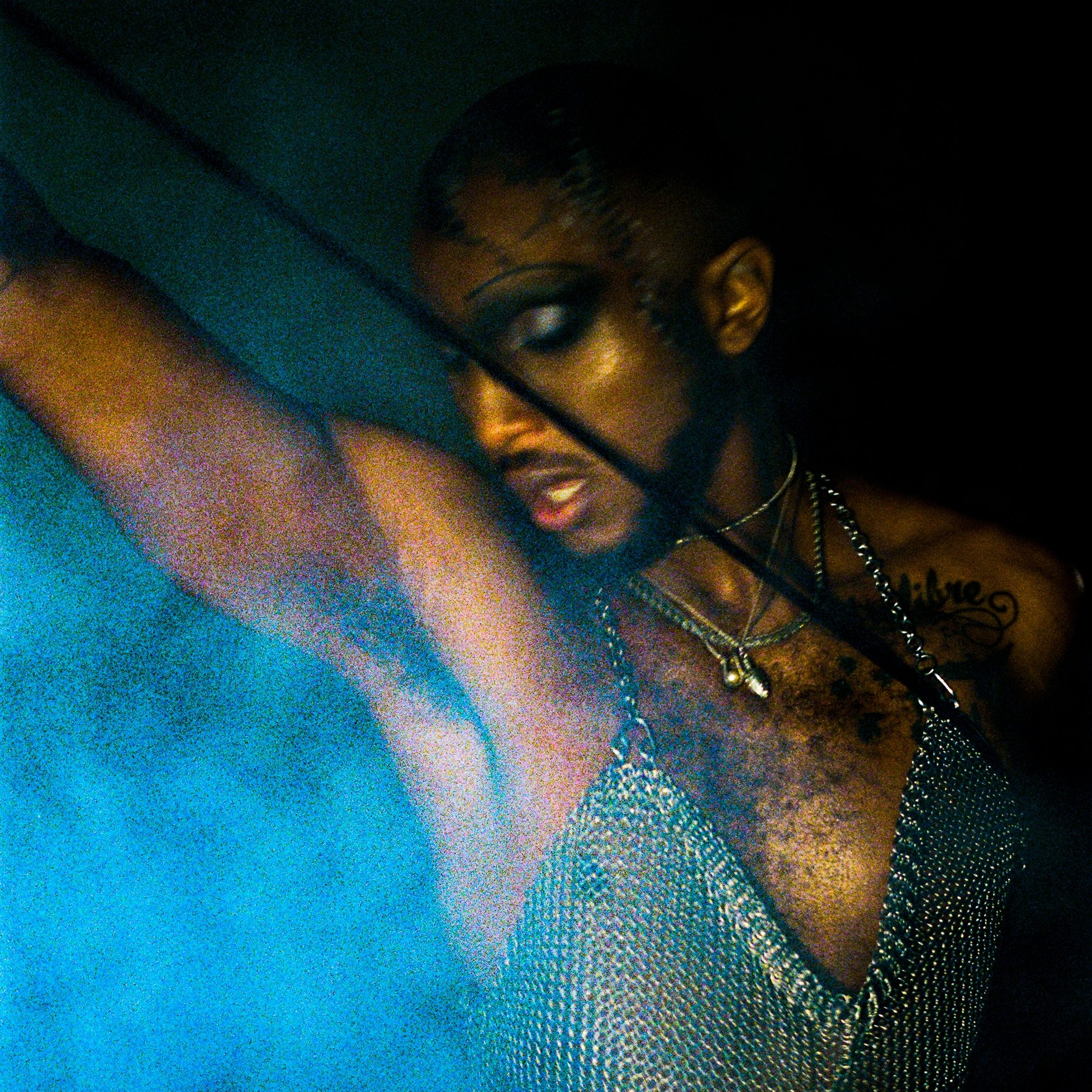
MG: Is this how 'Dedicated 2 Disrespect' came to be?
LX: I was marrying that Berlin influence that I took in with pop sensibilities. I didn’t want to make anything that felt one-note. I have a really short attention span and so I can never focus on one genre for my records. I wanted to weave in all these influences on this record without making it feel too cluttered. I also tried to incorporate all these different instruments that I've been taking in over the last few years.
MG: Instruments?
LX: I took a lot of time to focus on learning instruments. I don't come from a classically trained background. I didn't play any instruments growing up. I was in my choir as a kid, so I was always doing vocal things. Now, I'm learning how to play piano and electric guitar. I'm also studying how to read sheet music. It's really fulfilling because it just gives me an entirely new approach and breathes new life into my songs. Challenging myself to learn new things in music keeps it fresh for me.
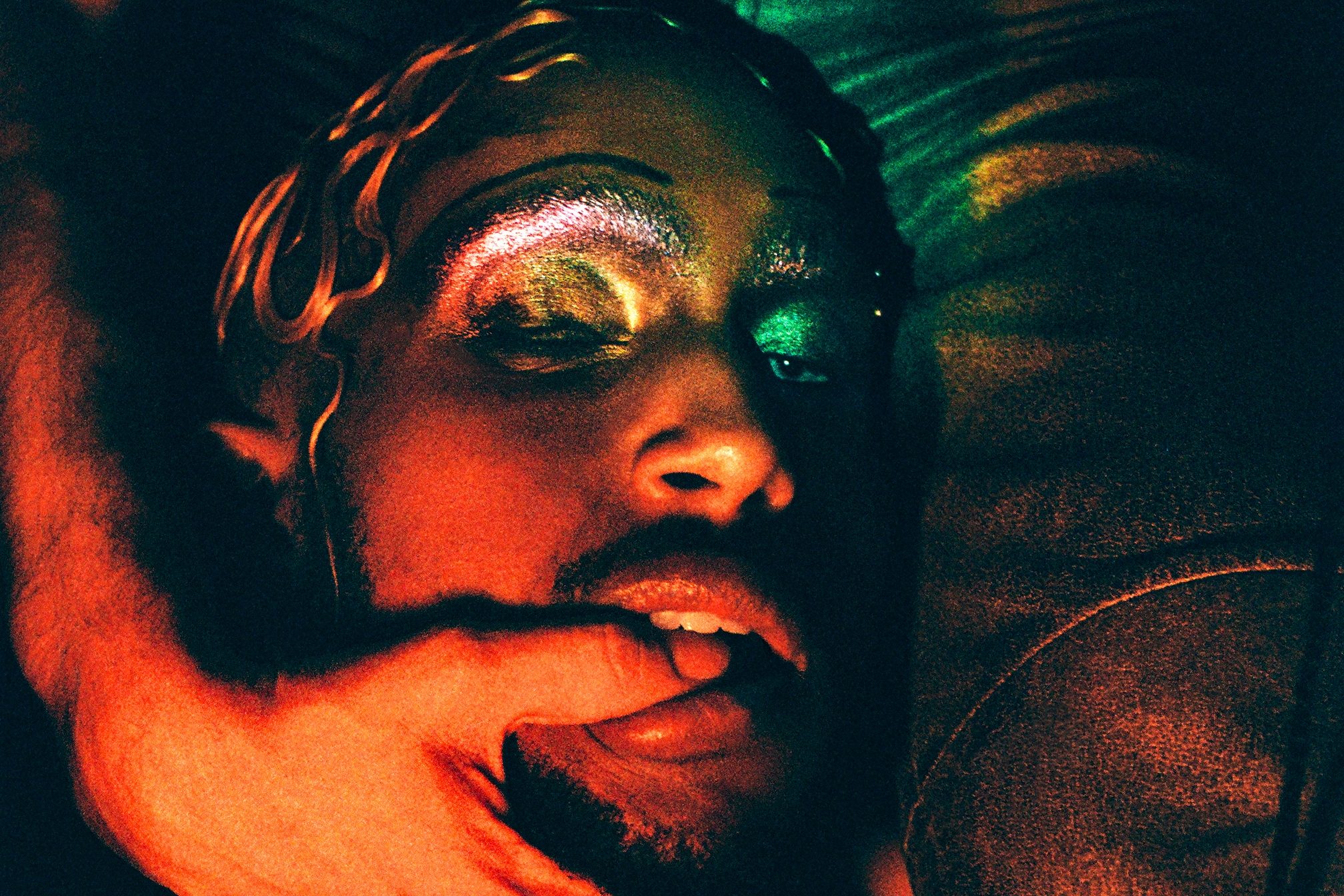
MG: How does this record differ from your previous work?
LX: I feel like all of my records, including this one, deliver my narratives quite well, but this one finally has my songwriting and my vocals. There's not there's not much sample work on this record as well. It sounds like there is but I wanted to find a new way to have that specific texture without sampling from other records. I've always written poetry and things like that for myself. So with this record, I wanted to focus on song structure and lyrics, and not just weaving club tracks together.
Read this next: How Yaeji found her voice
MG: My favourite track on this record is ‘The Devil’. It has that Dance Mania, Chicago house kind of feel but also has a bit of a techno element, very 90s New York, and those sacrilegious, nay sacrilegious, lyrics? Oh my god.
LX: That was the first one that I wrote on the record! I think that's why it feels so campy and playful. I was writing my album at the time and my writing process was way more intellectual and heavy so with this one, I was stepping out of that process to give myself some room to breathe. I named the record 'Dedicated 2 Disrespect' because I wanted to have this really vulgar sound that reflects who I am as an artist. It's not just shock value, it's who I am.
MG: I'm imagining a moment where your music makes contact with the evangelical Christian far right back home in the USA, spurring another wave of ‘Satanic Panic’.
LX: Right? I mean, I come from both the African American and a Caribbean Hispanic experience. I've always been taught to be ashamed of parts of my identity. I'm making this record and my music in general to celebrate those parts in totality. It's just been such a process: being a Black man and also being a gay man and finding my voice, not just as an artist but as a person too. When I began making music, I was scared to be seen. Now I’m proud to be seen and heard.

MG: And now people are singing your lyrics too. ‘Sick Bitch’ has been so hyped online since before it was even announced for release.
LX: Well, the lyrics aren’t hard to learn.
MG: [Laughs] I mean, when I first heard it, I immediately was thinking of Sound Factory NYC & Dat Oven, specifically the Shunji Moriwaki’s remix of 'Chelsea Press 2'.
LX: ‘Sick Bitch’ actually had a completely different build at first. It had more of a big room quality to it. When I recorded the vocals over, it was giving a different vibe so I wrote a brand new track that was influenced by DJ Yoeri’s ‘Fuck On Cocaine’. The production on ‘Sick Bitch’ has a similar crunchy build and a telephone dial tone-esque hook that gives it this phone sex hotline vibe.
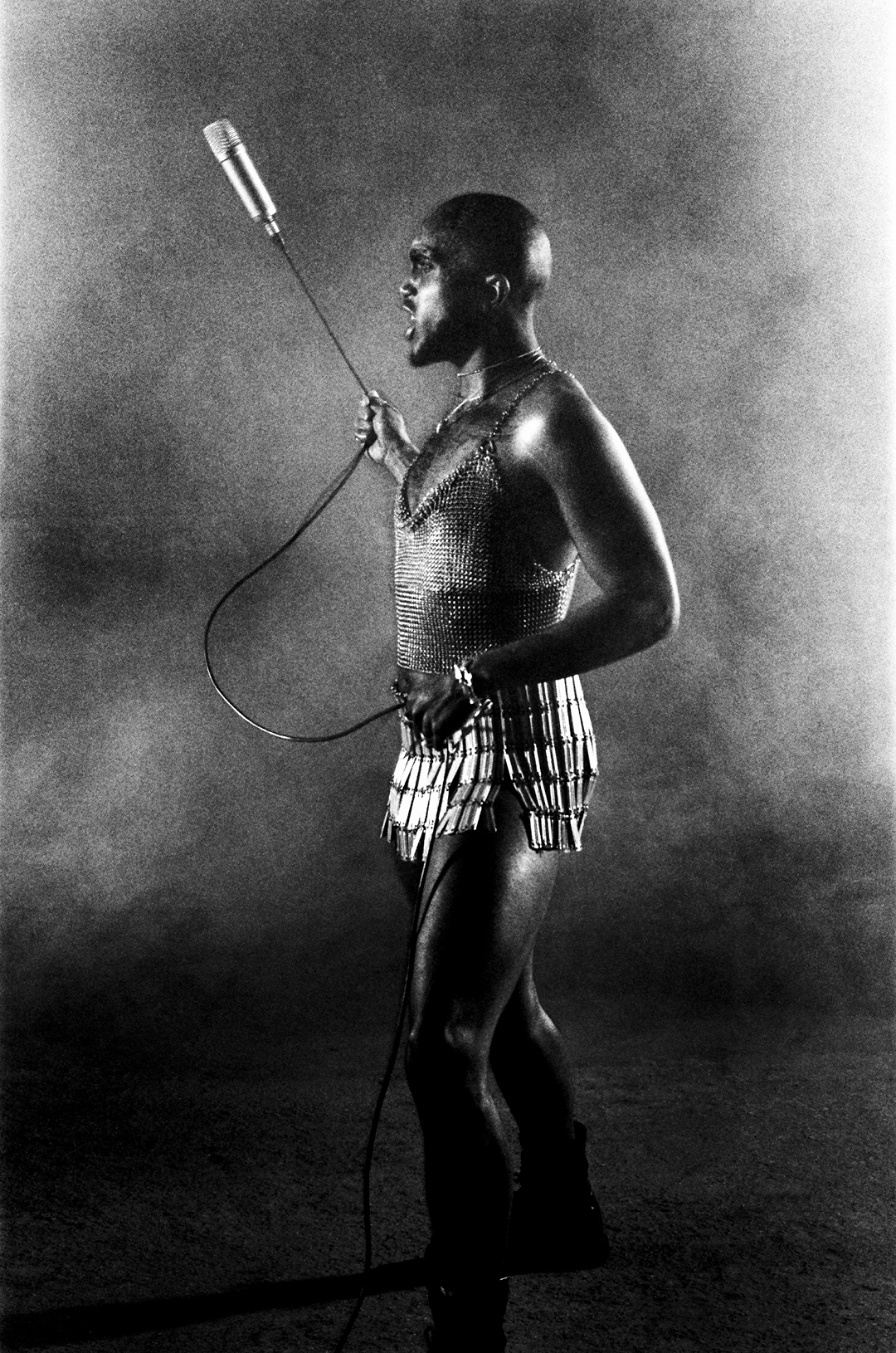
MG: For me, the video for ‘Sick Bitch’ feels like ultra explicit foreplay. I feel like I’m watching you enter a sex function that’s giving high glam.
LX: It was really important for me to make this kind of video and fully show who I am as an artist. The fashion elements especially -- the designer choices and their process as well. In New York, Venus X taught me a lot about fashion and how to refine my personal style. That played a big hand in how I approach the visual elements that go into my music videos. The main influence for ‘Sick Bitch’ is the movie Ganja & Hess (1973) — it's a beautiful Black Vamp piece, it's just so artful and satisfying to watch. That influence, plus the fashion, bridged with a really punk feel was important to marry all together.
Read this next: The Secret DJ's run in with the world of high fashion
MG: And the sexual components?
LX: In Berlin, I’ve kind of had this sexual awakening as well. The way people here have this really free approach to exploring themselves, you know? I come from a sexually repressed background, one that's so tied to religion. Being here has helped me to kind of break away from that. People here use sex and nightlife as this extreme release valve from the pressures of daily life.

MG: So this marriage of pop, punk, techno and sex seems like a natural combination for you. Would you say you're creating a blueprint?
LX: Not intentionally. Other artists today, they kind of had this kind of like ‘fuck you’ approach to making music, and I'm really enjoying it. People like Willow Smith or Lil Nas X are artists that don’t come from a specific genre or have just one approach. Instead the process is more explorative. My mission is about exploring genre and new ways of incorporating different influences. I'm finding a lot of joy and collaborating with other producers now. I definitely didn't want to relinquish that much power when it comes to the production side of things because I feel like that is so important in my music. Not many people can emulate what I do as a producer. It’s a very unique thing that I do. So now, after I took some time off from producing to focus on songwriting and my vocals, I’m ready to collaborate. I hadn't released music in almost three years before I released my last single from this record. Now I'm just flipping music. It's just like, pouring out of me.
Read this next: Noise Manifesto: Paula Temple's techno refuses to lie down
MG: Timely too! It’s like, what a moment to produce work that is beyond the hegemony of white-washed dance music, especially in Berlin, right?
LX: The most important thing for me moving forward is to not be comfortable when given a platform, but instead shake up the system a bit and open some doors for other artists that come from different upbringings and backgrounds. Building a bigger space for people like myself so that I'm not the only Black person on line-ups. That’s so boring. There’s this clear erasure of Black artistry from Black music over the decades, where all the money and visibility are given to white artists. It's helped me to realize how important it is for me to actually be visible as an artist. I think it's important to show people that you can do glam and camp here without diluting the importance of the craft.
MG: So it's time to do away with all the grayscale & monochrome?
LX: Exactly.
LSDXOXO's 'Dedicated 2 Disrespect' EP is out now, get it here
Marco Gomez is a freelance writer and a producer/DJ as False Witness, follow him on Twitter
[Additional photography shoot credits: Casting: Mother; Production: Public Space; Producer: Monika Martinez; Lighting Director: Anton Andalus; Photography Assistant: Anasol Michael; Light Technician: Jan VonEssen; Production Assistant: Nix Franco; Health & Safety Coordinator: Solomun Batsukh; Post Production: One Hundred Berlin; Cast: Soul Suleiman, Nasi Goreng, Cem Dukkah; special thanks to Tresor]



